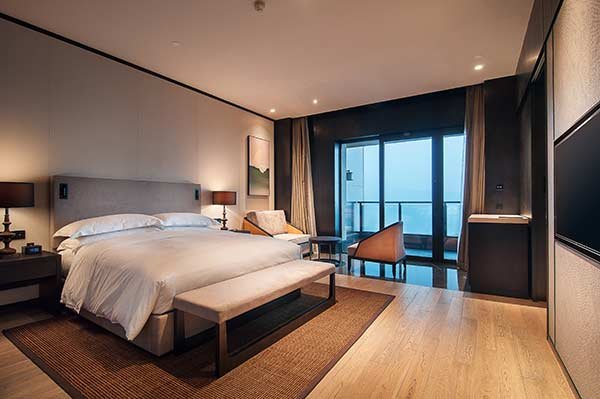It is important to maintain a clean, hygienic and safe environment in the hospitality industry. This will ensure guest satisfaction as well as their safety and health. The bathrooms in hotels are areas with high traffic and can harbour harmful bacteria and virus, which makes cleanliness a challenge. Antimicrobial additives are a solution that is gaining popularity in the hotel bathroom industry. These additives are not only able to improve the cleanliness of bathroom products, but they also provide a higher level of hygiene which helps create a welcoming and safe environment for hotel guests.
Understanding Antimicrobial Additives
Antimicrobial additives can be added to products and materials to prevent or inhibit the growth of microorganisms that are harmful, like bacteria, mold and fungi. These additives are integrated into many materials including textiles and plastics. They work by interrupting the microorganisms’ life cycle, preventing reproduction and spreading.
Silver ions, organic antimicrobials, and copper-based antimicrobials are all common antimicrobials used in products. Silver ions, which disrupt the cellular functions of microorganisms, are very popular. Copper compounds also have antimicrobial properties. Organic agents are more environmentally friendly, and they can be tailored for specific applications. These agents make bathroom products resistant to microbial development, reducing the spread of harmful bacteria.
Antimicrobial additives in Hotel Bathroom Products
Additives antimicrobial can be used on a variety of bathroom products from textiles to surfaces. Here are a few key applications for hotel bathrooms.
- Towels & Bath Linens
Due to their constant contact with moisture, towels and bath linens can harbor bacteria and fungi. Antimicrobial-treated towels, bathrobes, and linens help reduce the growth of microorganisms, which can lead to unpleasant odors, stains, and even skin irritation for guests. Hotels can make their linens last longer by adding antimicrobial additives. This will provide a more comfortable, hygienic and fresh experience for guests.
- Bath Mats and Shower Curtains
Shower curtains and bathmats are frequently damp, which can lead to the growth of mold, mildew and bacteria. These products are treated with antimicrobial agents to prevent mold and fungi growth, and keep them odorless and clean. The antimicrobial treatment not only prolongs the life of the product, but also improves the bathroom environment by keeping it clean and fresh.
- Bathroom Fixtures
Antimicrobial-treated faucets, showerheads, and other bathroom fixtures help reduce the spread of germs in areas that are frequently touched by guests. These treatments prevent bacteria and viruses from accumulating on surfaces that are frequently touched by guests, creating a safe environment for hotel staff and guests. Hotels can improve their cleanliness by applying antimicrobial finishes to fixtures. This will also reduce the risk of cross contamination.
- Toilet Seats & Bathroom Surfaces
In hotel bathrooms, surfaces that are frequently touched, such as toilet seats, light switches, doorknobs and counters, are more susceptible to contamination by microorganisms. These surfaces are treated with antimicrobial coatings to reduce the spread and transmission of germs. This improves both guest satisfaction and hygiene. These surfaces are kept safe and clean with regular cleaning and antimicrobial treatment. This gives guests peace of mind.
Benefits of antimicrobial additives in hotel bathrooms
Antimicrobial additives are used in many hotel products to enhance the guest experience.
- Enhance the Guest Experience
Antimicrobial treatments help create a more comfortable and hygienic bathroom for guests. Reduced microbial growth means that guests are less likely encountering unpleasant odors or skin irritations caused by bacterial buildup. This encourages repeat business, positive reviews and a positive experience at the hotel.
- Cost-Effective Hygiene Management
In order to maintain cleanliness, hotels must regularly clean bathrooms. Antimicrobial-treated products help reduce the frequency of deep cleaning and replacements, ultimately saving time and costs. These products are made to be durable and resistant to wear, which extends their life and reduces the need for expensive replacements.
- Safety and Health Standards
The hotels are responsible for providing their guests with a clean and safe environment. Antimicrobial additives help hotels meet or exceed standards and regulations for health, assuring that they are in compliance with hygiene requirements. Hotels can create a safer environment for their guests, staff, and visitors by minimizing the spread and growth of bacteria and virus.
The Environmental Impact of Antimicrobial Additives
Eco-friendly antimicrobials are becoming more popular as sustainability is becoming a key factor in the hospitality sector. Antimicrobial agents that are environmentally friendly offer effective protection from microbes while not harming the environment. Hotels are also adopting sustainable practices by choosing antimicrobial-treated products that align with their green initiatives, ensuring that their operations support both guest health and environmental responsibility.
Why Hotels Should Use Antimicrobial Additives In Their Bathroom Products
Antimicrobial additives in bathroom products can bring several benefits to hotels. Antimicrobial treatments are a great way to gain a competitive advantage by meeting the increasing demand of hygiene-conscious customers. Many travelers now prioritize cleanliness and safety when selecting accommodations, and offering antimicrobial-treated products can set a hotel apart from competitors.
The use of antimicrobials can also enhance the perception of a brand. In their marketing, hotels that stress hygiene and safety are more likely to attract guests with a high regard for cleanliness. This will increase both revenue and guest loyalty. Antimicrobial-treated products also support hotels in their efforts to reduce the spread of infections, promoting guest well-being and helping to prevent outbreaks of illness.
Conclusion
Antimicrobial additives can be easily incorporated into bathroom products to enhance hygiene, increase guest satisfaction and streamline hotel operations. These additives can be applied to towels or bath linens as well as bathroom fixtures and surfaces. They help reduce microbial development, creating a safer and cleaner environment for hotel visitors. Hotels that use antimicrobial products will improve the guest experience and gain a competitive advantage in the market as the demand for hygienic environments continues to increase. By making antimicrobial-treated products a standard part of their bathroom offerings, hotels can create a truly hygienic and inviting space for their guests.


-300x210.jpg)
